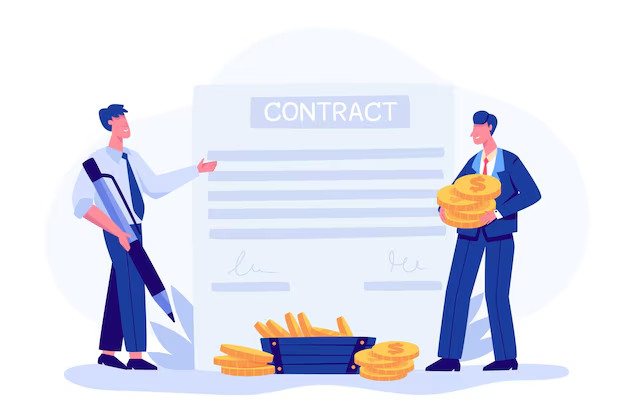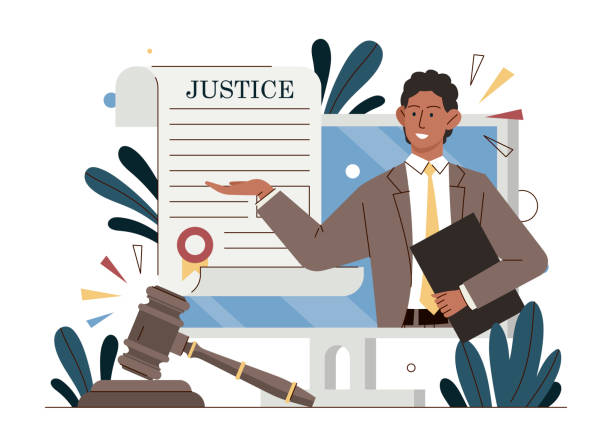Contract Law

Are you signing a contract and worried about hidden terms? Do you know what makes a contract legally enforceable? Are you unsure of your rights if a contract is breached? Do you want to know how to draft a basic agreement without involving a lawyer? Are you unclear about verbal versus written agreements?
Contracts form the foundation of countless personal and professional relationships, from employment to rental agreements and business partnerships. We can help outline the key elements of a valid contract—offer, acceptance, consideration, and mutual intent—so you can better understand how agreements are formed and enforced. By demystifying these legal concepts, we aim to give you the confidence to navigate contracts independently.
If you’re reviewing a contract, we can guide you on identifying critical terms and clauses, such as payment terms, timelines, and dispute resolution mechanisms. For example, we’ll explain why clear language matters and how vague terms can lead to disagreements. We can also suggest steps to clarify expectations with the other party before signing.
If you’re dealing with a breach of contract, we can outline the initial steps to take, such as documenting the issue, communicating with the other party, and exploring low-cost resolution methods like mediation. Understanding your options can help you address the issue effectively without resorting to costly litigation.
Finally, we can provide tips for drafting simple contracts to avoid future disputes. Whether you’re hiring a contractor, renting a space, or entering a business partnership, having a clear and well-structured agreement is essential. By taking the time to understand these basics, you’ll be better prepared to manage contractual relationships successfully.
What Is Contract Law?
Contract law governs the formation, performance, and enforcement of agreements between two or more parties. It ensures that promises made in a contract are legally binding and provides remedies when those promises are broken. At its core, contract law is about creating trust and accountability in agreements between parties.
1. Types of Contracts
Understanding the different types of contracts is essential when entering into an agreement. Here are the most common types:
- Written Contracts: These are formal agreements documented in writing and signed by the parties involved. They are typically more enforceable due to their clarity.
- Verbal Contracts: While legally binding in many cases, verbal agreements can be difficult to enforce due to the lack of tangible evidence.
- Implied Contracts: These arise from the conduct or actions of the parties, even without explicit agreement.
- Standard Form Contracts: These pre-drafted agreements often come with non-negotiable terms (e.g., software license agreements).
- Electronic Contracts: With the rise of digital transactions, e-signatures and online contracts have become commonplace.
Each type of contract has its own legal implications, and knowing which type applies to your situation can help you protect your interests.
2. Elements of a Valid Contract
For a contract to be legally enforceable, it must include the following elements:
- Offer: One party proposes specific terms to another.
- Acceptance: The other party agrees to the terms without modification.
- Consideration: Both parties exchange something of value (e.g., money, goods, or services).
- Capacity: All parties must have the legal ability to enter into a contract.
- Intention: The parties must intend to create a legal relationship.
- Legality: The contract’s purpose must comply with the law.
Understanding these elements is crucial to ensure the validity of your agreements.
3. Drafting Contracts
A well-drafted contract is the foundation of any successful agreement. Here are some key tips for drafting contracts:
- Use clear and concise language to avoid misunderstandings.
- Include key clauses such as payment terms, timelines, confidentiality, and dispute resolution mechanisms.
- Avoid vague terms and ambiguities that could lead to disputes by using clear definitions.
- Customize the contract to reflect the specific needs of your transaction or relationship.
We may be able to assist you in your drafting of a robust contract tailored to your requirement, ensuring clarity and enforceability.
4. Breach of Contract
A breach occurs when one party fails to fulfill their contractual obligations. Here are the types of breaches:
- Minor Breach: A partial failure that doesn’t significantly impact the contract.
- Material Breach: A failure that undermines the purpose of the agreement.
- Anticipatory Breach: When one party signals they won’t fulfill their obligations.
Remedies for Breach:
- Damages: Monetary compensation for losses incurred.
- Specific Performance: A court order requiring the breaching party to fulfill their obligations.
- Rescission: Cancelling the contract and restoring both parties to their pre-contract positions.
If you’re dealing with a breach of contract, we can guide you on documenting the issue, communicating with the other party, and pursuing appropriate remedies.
5. Resolving Contract Disputes
Disputes often arise due to misunderstandings or breaches. Here are some ways to resolve them:
- Negotiation: Discussing the issue with the other party to reach a mutual agreement.
- Mediation: Involving a neutral third party to facilitate a resolution.
- Arbitration: A binding decision made by an independent arbitrator.
- Litigation: Taking the dispute to court for a legal judgment.
Resolving disputes through alternative methods like mediation can save time and resources while preserving relationships.
6. Termination of Contracts
Contracts can be terminated in several ways:
- Mutual Agreement: Both parties agree to end the contract.
- Breach of Contract: One party fails to meet their obligations.
- Frustration: Unforeseen events make it impossible to fulfill the contract.
- Expiry: The contract’s term comes to an end.
We can help you understand the legal and financial implications of contract termination and ensure a smooth transition.
7. Contract Enforcement
Enforcing a contract involves ensuring that all parties adhere to its terms. Here are some key points to consider:
- Jurisdiction: Determine which legal system governs the contract.
- Choice-of-Law Clauses: Specify the applicable laws in cross-border contracts.
- Court Intervention: Courts may enforce contracts through monetary awards or specific performance orders.
8. Common Clauses in Contracts
Here are some key clauses that every contract should include:
- Indemnity Clauses: Protect one party from losses caused by the other.
- Limitation of Liability: Caps the amount one party can be held liable for.
- Force Majeure: Excuses non-performance due to extraordinary events.
- Confidentiality Clauses: Protects sensitive information shared between parties.
- Dispute Resolution: Specifies how disputes will be resolved.
Including these clauses can safeguard your interests and reduce risks.
Conclusion
Contract law forms the backbone of countless transactions and relationships. By understanding its principles and intricacies, you can confidently navigate agreements, resolve disputes, and protect your rights. Whether you’re drafting a new contract, reviewing an existing one, or dealing with a breach, having the right guidance can make all the difference.
Take the Next Step
Contact us today for personalized assistance with your contract law needs. From drafting and negotiation to enforcement and dispute resolution, we’re here to help you manage your contractual relationships effectively.
Why Choose Our Legal Consultation Services?
Affordable and Accessible

Affordable and Accessible
Navigating legal challenges can feel overwhelming, but getting reliable guidance shouldn’t break the bank. Our 30-minute consultations are designed specifically for individuals and businesses who need clear, actionable legal advice at a low cost. Whether you’re dealing with a contract issue, employment dispute, or have questions about your rights, we provide you with the answers and direction you need — quickly and professionally.
Personalized Guidance

Personalized Guidance
Every legal situation is different, and a one-size-fits-all approach simply doesn’t work. That’s why we offer tailored legal solutions carefully designed to address your specific needs and circumstances. Whether you’re facing a personal legal issue, managing a business concern, or seeking guidance on complex matters, our approach is customized to provide the most effective and practical outcomes for you.
No Commitment Wasted

No Commitment Wasted
We believe in complete transparency and fairness when it comes to payments. Rest assured, your payment will only be processed once your case is accepted, giving you peace of mind before you commit. To ensure the highest level of security, we use Stripe’s trusted and secure payment gateway. Your credit card information is encrypted, safeguarded, and never stored on our servers, so you can confidently book your consultation without any worries about data security.
Secure and Confidential

Secure and Confidential
We prioritize your privacy and security at every step. All your personal information and payment details are fully protected using industry-leading encryption and security protocols. With our partnership through Stripe’s trusted payment gateway, your sensitive data is safeguarded and never stored on our servers.
